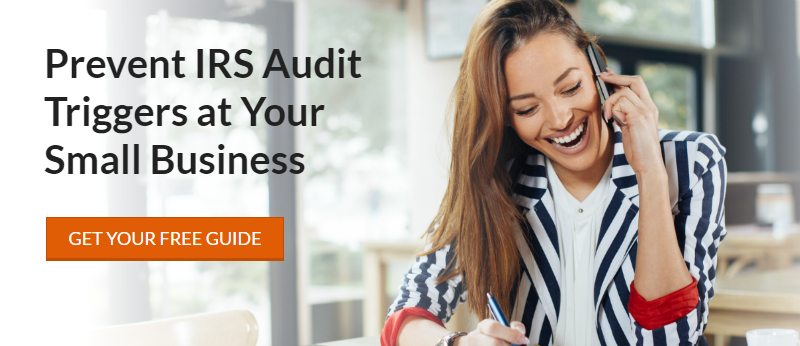Getting audited by the IRS can be scary. But, an audit could be worse if you are not ready for it. Failing to plan ahead could lead to additional audits. Make sure you know how to prepare for an audit before the IRS starts to look at your small business’s finances.
How to prepare for an audit in advance
You can help the process go smoother by preparing your business for an audit. Take these actions for how to prepare for an audit.
Organize financial documents
The IRS can review any financial documents you use to file your tax return. Disorganized records could cause the audit to last a long time. And, the longer the auditor digs into your finances, the more likely they are to find a mistake.
Prepare for an IRS audit by organizing all the documents related to your business’s finances. Well-prepared records establish credibility. By showing you are careful with your books, the auditor can be more confident in your tax filings.
Look at your tax return
Match the figures on your tax return to your financial records. If the recorded totals are different, find the figures that are unequal. For example, you reported an expense as $200, but the original receipt says it was $100.
The imbalances are places where you might have missing or mistaken records. Having knowledge about your accounting will help you answer questions during the audit.
What to bring to the audit
Bring financial records that are relevant to information on your tax return. It is a good idea to have multiple records for each income or expense item. For example, a bank statement includes the same expenses reported in your books and credit card statement. Make sure you have the following records with you at the audit.
Financial records
The IRS is looking at the whole picture of your finances, not just your tax return. Bring your personal and business records. Gather these documents for you and your business:
- Bank statements
- Void checks
- Receipts
- Invoices and sale slips
The auditor will check the documents for errors on your tax return. Often, the goal is to find unreported income or overreported expenses.
You also need to bring your accounting records to the audit. The auditor will reconcile your books with the supporting financial documents listed above.
Calendars, logs, and journals
Show the auditor your calendars, logs, or journals. These documents might outline meetings with clients, projects, and payment dates. The records help reinforce more evidence of your reported expenses.
Equipment and leasing records
Small business owners often use equipment for both personal and business purposes. Equipment might include phones, computers, and vehicles. Keep receipts for buying and maintenance for each item. Include fuel receipts, too.
You can deduct business expenses from your tax return to reduce your tax liability. What are business expenses? They are purchases made to operate your business.
Business expense deductions are helpful to small business owners. But, reporting some expenses can raise IRS red flags. For example, you own one cell phone. On your tax return, you claim the phone as a 100% business expense deduction. The auditor may be suspicious because it’s unlikely you never make a personal call on your only phone.
Now that you know how to prepare for an audit, do you need a simple solution to keep track of your income expenses? Use our online accounting software to record your books in a few simple steps. To help get you started, we offer free setup and support. Try it for free today!

